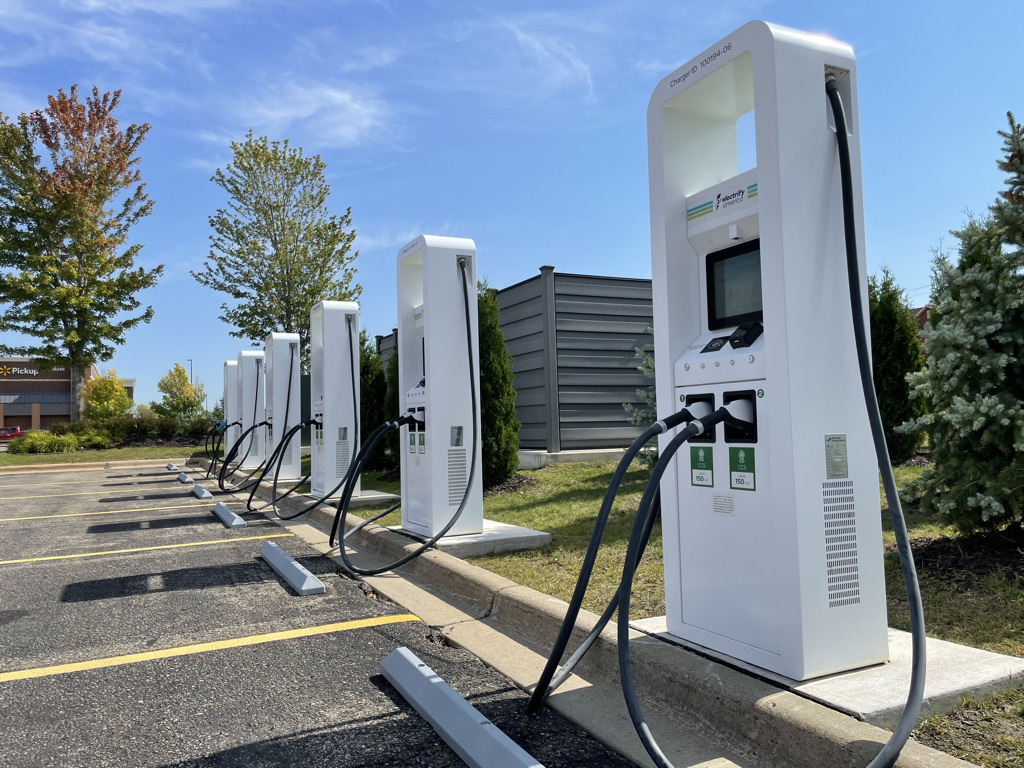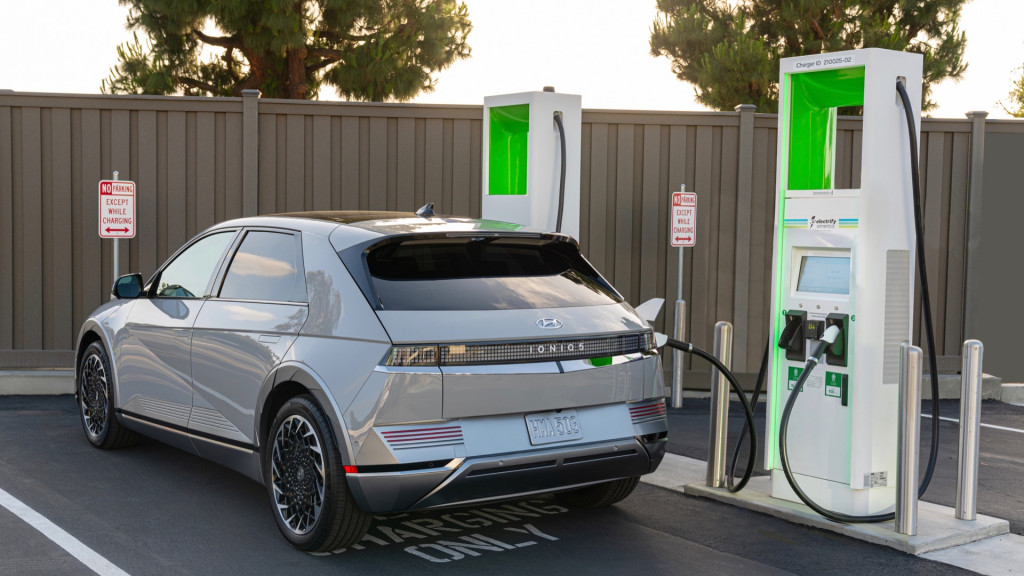Finding new locations for DC fast-charging stations can be complicated, but Electrify America believes onsite battery storage can provide more flexibility.
Battery storage enables Electrify America to roll out new DC fast-charging stations in new locations where it might otherwise be cost-prohibitive due to current utility rate structures, the charging network said in a press release, underscoring that it now has 30 MW from installed battery storage at 140 stations.
Using batteries allows EA to avoid so-called "demand charges"—premiums charged by utilities for sudden spikes in electricity demand, the company explained.

Electrify America chargers
DC fast-charging stations can trigger these surcharges through regular use, significantly adding to operating costs. Only a few states—Massachusetts, most notably—have attempted to provide a workaround for charging providers.
Battery storage can also be paired with renewable energy, capturing excess energy and storing it for later use, Electrify America noted. Charging electric cars with renewable energy in turn reduces their overall carbon footprint.
Electrify America said it plans to begin rolling out next-generation battery storage hardware early next year, which the company said will offer better performance within the same footprint. Funded by the Volkswagen Group as part of its diesel-emissions cheating settlement, Electrify America also rebooted its pricing in 2020, shifting to charging by the kwh where it's allowed.

2022 Hyundai IONIQ 5 at Electrify America DC fast-charging station
Battery storage for permanent stations isn't the only option for adding more fast-charging infrastructure quickly.
Mobile charging also has a role in helping fill in the spaces where the grid can't handle the power demand or there's simply not enough of a need for permanent infrastructure yet.
There are some some solutions other than big batteries being applied. One such example is from Israel's Chakratec, which is using flywheels for energy storage.












